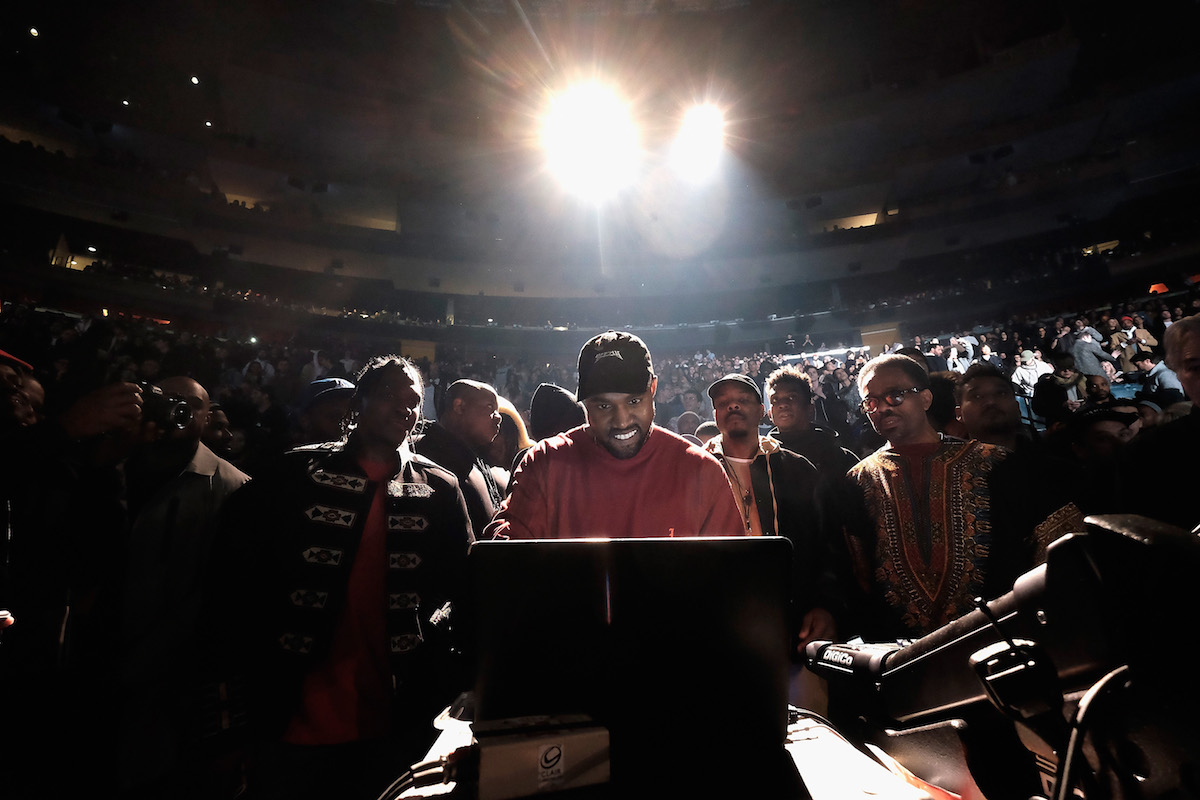So, who worked on Kanye West’s ye? Your guess is as good as anyone else’s, and it’s a problem that is not going away as physical media continues to disappear in a world in which the consumption of music is happening almost strictly online.
When the rapper dropped his eighth album last week, it set internet investigators scrambling to figure out which of the many artists who reportedly traveled to Wyoming to collaborate on the album actually made it on the final version. The credits attached to the album were unusually sparse, with the only featured artist listed being Nicki Minaj, who appears in the form of a four-line voicemail clip at the end of the album’s final song. Vocalists who were noticeably audible on some of the other songs—such as Jeremih and Ty Dolla $ign—were left uncredited, which sparked a wild, crowdsourced attempt to cobble together a more extensive list of features. It ended up resembling the game where everyone lines up and takes a guess at how many jelly beans are in the jar.
Dej Loaf and Valee were initially reported by sites like Pitchfork and Spin to be on the songs “Violent Crimes” and “All Mine,” respectively, but those voices seem to belong instead to 070 Shake and Jeremih. Young Thug was widely listed as the opening vocalist on “Wouldn’t Leave,” even though it’s actually Partynextdoor, whose feature is uncredited; most sites, including Genius and Pitchfork, now have Partynextdoor listed, though it’s unclear if those are correct guesses or officially verified information. A rep for the singer confirmed to Spin that he’s the first voice that appears on “Wouldn’t Leave” as well as “Ghost Town,” despite the latter being first reported to be John Legend. (John Legend’s rep did not respond to a request for comment about whether he appears on the album.) Kevin Parker from Tame Impala was initially believed to have made the album; that was proven untrue. These leaps of faith seem to be the extent to which the public, via journalists, is aware of which artists are on the album.
Requests to West’s reps for an official list of credits have so far gone unanswered. It’s possible that the lack of information from his camp is intentional, though I would guess it’s more a function of the album being completed the night it was released. The credits for West’s Life of Pablo are extensively listed on his website, but even that feels impermanent; the url is kanyewest.com/credits, which raises the question of whether they will be replaced at some point by some other credits, possibly for ye.

Also Read
GEAR THAT MADE THE GAME: Rap Machinery
Music nerds have always obsessively dug through album credits to discover who worked on their favorite songs, so the desire driving this sort of manic search for information is nothing new. But the rules of engagement, on so many levels, have changed. Where conversations about such things might have once taken place in record stores or on message boards, social media—Twitter in particular—has made it so they now happen in public, among thousands of people, including, sometimes, the artists themselves. The day the album was released, now-longtime West collaborator Justin Vernon tweeted that “Wouldn’t Leave” began as a jam between him and the musician Phil Cook; nobody would have known this had he not revealed it. That these conversations happen publicly and in real-time means that they also have news value, which, in an era of hyper-quick aggregation that prioritizes speed over accuracy, leads to a blurring of the line between amateur investigator and professional journalist, itself ending in the reader being fed a constantly evolving stream of thinly sourced information.
At the same time as these conversations about who worked on music are more visible than ever, our ability to access that information has never been more perilous. Physical copies of albums provided any purchaser with detailed credits; in the age of streaming, such luxuries are not always afforded. There are no immediately available physical versions of ye, for instance, and cost-cutting measures across the music industry mean that even albums that do get distributed physically often do not have the once-standard full booklet of credits. (ye is now available to order on CD and vinyl, with orders shipping “early August.”) The ye credits reported by news sites were partially pulled from Tidal and Spotify, but the information provided there is, clearly, lacking. Still, those services are now basically the public’s last bastion in this regard, and they are simply at the mercy of the record labels, which could one day decide that providing detailed songwriting and production credits is no longer worth their time. (There is also the ASCAP database, but it takes some expertise to navigate and parse, and is also being frequently spoofed by people on Twitter looking to further muddy this conversation for retweets.)
The great promise of the internet was that having the sum total of humanity’s knowledge at our fingertips would make the world smarter; of course, what we’ve found instead is that the internet is much more potent as a means of making the world dumber. The lack of information regarding who contributed what to Kanye West’s new album is many, many degrees less serious than, say, disinformation warfare being used to elect Donald Trump, but we’re still stumbling around in a fog just the same.




